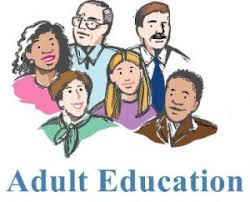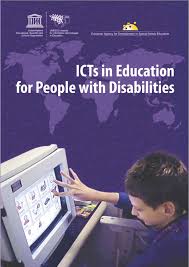PERCEPTION OF ADULT LEARNERS IN PARTICIPATION OF ADULT EDUCATION PROGRAMMES
₦10,000.00 ₦3,000.00
ABSTRACT
This study examined Perception of adult learners in participation of adult education programmes in Oyo Metropolis. A case study of Federal College of Education (Special), Oyo Part time programme, Durbar Centre, Oyo. The study employed a survey research method to collect information on the Perception of adult learners in participation of adult education programmes in Oyo Metropolis comprises of four (4) selected department in Federal College of Education (Special), Part time programme, Durbar Centre, Oyo State. The researcher randomly selected sixty (60) students from the selected departments for the study. The instrument used in collecting the data for this study was questionnaire designed to elicit response to the five (5) research questions raised in chapter one. The study showed that adult education help most adults to make better use of their lives. As a result, most of the adults enjoy participating in educational activities. In fact, education for adult is as important as education for children. Also, the need for education continues through one’s lifetime and participating in adult education is a good use of leisure time. The finding shows that going back to school as an adult is embarrassing. Therefore, more adults should be encouraged to participate in adult education. Also, continuing their education make most adults feel better about themselves and adult education will be beneficial to most of the adults. Conclusively, most of the adults enjoy educational activities that allow them to learn with others and the best way for adults to learn is to attend adult programs. Most of the adults cannot learn everything they need to know on their own without participating in adult education. Successful people also need adult education.
Description
CHAPTER ONE
INTRODUCTION
1.1 Background to the Study
Education is the industry that produces manpower for the economy of nations. Therefore, education enhances manpower development by improving the number and quality of human resource. Afonja (2003) is of the opinion that education is truly a mirror of the level of development and the aspiration of any people.
Education in general and functional literacy programmes in particular are means of advancing people in terms of giving them knowledge, skills attitudes necessary for expanding their potentials. Akinpelu (2002) opined that education programmes are organized for learners who have pre-occupation or jobs other than studying. Furthermore, Education is associated with vocational occupation or professional stills of development.
Adult education is one step further from elementary literacy.
It refers to the ability to use the skills of reading writing and computing in the acquisition of such information as would make the individual function more actively and beneficially in the economics, social, political psychological and cultural activities of the community where he or she lives. Essentially, for any adults to participate in any Adult education programme, there must be need for it. Need and motivation are two important things that guide the adult participants in Adult education progrmmes. Akinpelu (2002) submits that Adult education programme is also known as functional literacy programme. This is because literacy is seen as a tool for developing skill, knowledge and attitudes for the daily survival of human persons. Therefore, literacy is an educational process which aims at in calculating in the individuals the ability to read and write and to carry out basic calculations. Also, Literacy could be seen as the ability to function better in any social context he finds himself. Thus, literacy is aimed at enhancing one’s understanding of the society in which one is required to assume a functional role.
UNESCO (2011) defined adult education programme as the a literacy programme intentionally set up for adult who are deprived basic education so that they will have the ability to identify, understand, interpret, create, communicate, compute and use printed and written materials associated with varying contexts. Adult education involves a continuation of learning by adult individuals to achieve their goals of developing their knowledge and potential and to participate fully in their community and wider society. Oduaran (2001) adds that adult education programme will aid the ability of participant to use the skills of reading, writing and computing that would benefit the individual. This will also assist them in self improvement, family responsibilities, job participation, advancement, urging by other people, social expectations and relationships, escape from bore dome and stimulation and cognitive interest as a basic motivation.
Oduaran (2001) further adds that the needs that attract the motivation of adults to take part in adult education programmes are in five categories:
- Psychological
- Safety, stability and security
- Belongingness (social affiliation love)
- Self esteem and
- Self actualization
The above hierarchy of needs make us understand why adult learners participate in adult education programme. For instance an adult learner who lacks social and economic rewards tend to participate in adult education programme so as to improve these needs, he needs to engage in self educational programme. Also, the tension and problems learners encounter in his environment or working place will motivate him to learn more so as to find a solution to the tension and problems. He participates in functional literacy programmes so as to improve safety, security for himself, whether in his job or environment.
The learning needs of adult learners vary according to their social roll. Adults who newly arrive at working age will be obsessed with learning how to make a living, also a woman with young children will be interested in domestic matters and in the children education. The individual as an adult learner has a need that is sometimes termed self-fulfillment or self actualization. Some adult learners may wish to develop skills in their work which will enable them excel or in other skills from which they may derive satisfaction and recognition such as in sports or in domestic practice like sewing or cooking. Some may wish to enhance their social standing cultivate new social relationships and feel the need for learning how to achieve such needs. (Grace, K. & Ellen, B., 2017).
There are some adult learners which may have educational opportunities in the past may feel incomplete as persons unless they fill what they see as gaps in their knowledge and education. The behaviour of adult learners in a given environment is aimed at fulfilling basic want or needs which vary at a given time. Also, the need to improve on ones job, further knowledge or education, to improve social status, for socialization, mental improvement psychological capability, political orientation, religious improvement, awareness etc will motivate adult learners to participate in Adult education programmes.
The attitude of the adult educator can also motivate adult learners to enroll in functional literacy programmes. Availability of the facilities in the environment where it is located can also encourage earners to participate in literacy programs. Because adult learners are motivated by what they see, how they are treated thereby causing growth and development.
1.2 Statement of the Problem
There has been a rapid increase in the participation of adult learners in Adult education programmes in recent years. This is evident in the high rate of adult learners enrolment in part time and sandwich programme in Oyo town taking advantage of centres offering such programmes. In spite of the various tasks which adult learners who participate addles with, they still avail themselves with these learning and activities or opportunities what then could be the motivating factors. To what extent do these factors serve as determinants of adult learners’ participation in Adult Education programmes? The focus of this study is to determine the factors which motivate adult learners’ participation in Adult education programmes in Oyo town.
- Research Questions
- What is the perception of adult learners in participating in Adult education programmes?
- To what extent does adult learners’ social interaction or relationship influence their participation in Adult education programmes?
- To what extent do adult learners psychological characteristics serve as determinants of adult learners’ participation in Adult education programmes?
- Do responsibility and personal life factors motivate adult learners’ participation in Adult education programmes?
- To what extent do adult learners’ economic reasons influence their participation in Adult education programmes?
1.4 Purpose of Study
This study seeks to find out the factors motivating adult learners’ participation in adult education programmes in Oyo town. It is to seek the factors enhancing or propelling adult learners to take part in functional literacy programmes. Factors like physiological and basic human factors or needs motivate the adult learners to take part. They take part to seek improvement for what they feel is not fully actualized, until it is fully actualized. The need will continue to bother the adult learners. The study is to know these needs or drives so that the adult educator can be well equipped and prepared on how to teach the adult learners. Cope with them and any situation they might have and to motivate and help them find solutions to those problems. Thereby bringing about growth, change in behavior of the learners and the society to which they belong.
1.5 Significance of the Study
The findings of this study will help policy makers in both public and private institutions in providing appropriate adult educational programmes for adult learners to enable them keep abreast of social, economic political, psychological and educational changes. It is the adult educators missions in helping adult learners learn what will gratify their needs at whatever level they may be struggling. Therefore, if adults are hungry, they should be helped to learn what will give them food, if they are well-fed, safe, loved and esteemed, they must be helped to explore undeveloped capabilities and become fully equipped.
Therefore, the federal government of Nigeria realizing that the only way to transform every area in the country into an advance state and to eradicate illiteracy, empower citizens is to direct its policy towards equal and adequate educational opportunities for all citizens by creating literacy centres that will promote functional literacy programmes for growth and development of adults.
It is therefore very important to determine the factors that motivate adult learners to participate in adult education programmes.
1.6 Scope of Study
This study is limited to the Oyo metropolis. It covers specifically part time centre of Federal College of Education (Special), Durbar, Oyo, Oyo State.
1.7 Definition of Terms
Adult learners: Mature individuals who participate in a learning situation that will bring about changes.
Education: A process of teaching, training and learning made to improve on knowledge, behavior and to develop skills
Literacy: It is an instrument for acquiring relevant knowledge and skills required for development, literacy is the ability to read and understand a simple text, and to use and transmit written information of everyday life. It is an activity embedded in social and cultural practices.
Functional literacy: The ability to use the skills of reading, writing computing in the acquisition of basic information for development. Also, the use of adult education to acquire knowledge and skills to meet individual needs and foster national development.
Motivation: It is the management function that stimulates individuals to accomplish set down instructional or organization goals. It is an intrinsic drive towards the fulfillment of personal needs and the improvement of ones perceived status, it is influenced strongly by extrinsic factors.
Literacy programmes: It refers to the programmes designed to enhance the skills, and development. It is also a systematic planned activities intended to equip and individual participants to become skillful in the ability to read, write and compute to an appreciable level.







Reviews
There are no reviews yet.